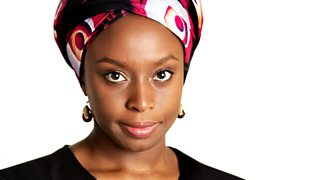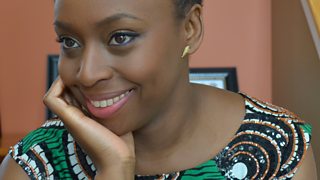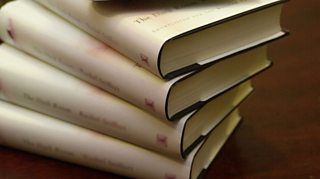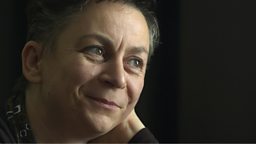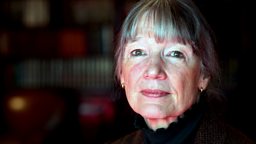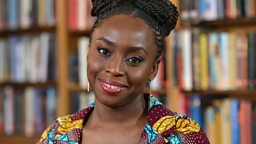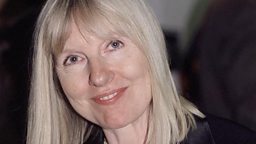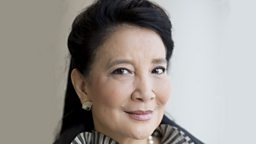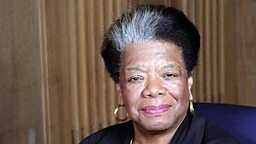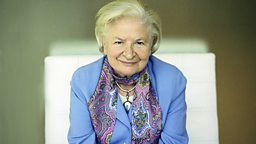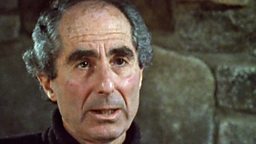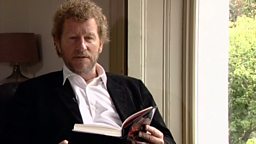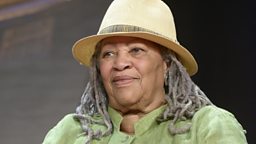Chimamanda Ngozi Adichie
Chimamanda Ngozi Adichie's Purple Hibiscus brought to you by Radio 4. Sarah LeFanu's adaptation was originally broadcast as a Book at Bedtime in February 2005. It is read by Rakie Ayola.
-
![]()
Purple Hibiscus tells the story of a 15-year-old girl in Nigeria, learning to resist the control of her religious father as the country falls apart under a military coup. Chimamanda Ngozi Adichie's debut novel was shortlisted for the Orange Prize and won the Commonwealth Writer’s Prize in 2005.
From the archive
-
![]()
Βι¶ΉΤΌΕΔ News asks Adichie how to make sense of Nigeria's 21st century identity, after the country was anointed as Africa's number one economy in 2014. Adichie tells HARDtalk about how she sees Nigeria's story unfolding.
-
![]()
In conversation about her 2013 book Americanah. Adichie takes on the challenge of the great American novel through pages packed with real-life incidents and observations - particularly on the peculiarities of racial identity in American campus life. She also reflects on an adolescent love of Mills and Boon.
-
![]()
Adichie joins Harriet Gilbert in June 2013 to meet an audience of readers at London’s Southbank Centre. She reads and answer questions on her second novel.
-
![]()
Adichie talks to Mariella Frostrup in 2006 about following up the success of Purple Hibiscus with Half of a Yellow Sun. Adichie is eager to interrogate the legacy of the Nigerian-Biafran war and the long process of making her characters feel real.
-
![]()
Adichie joins Jenni Murray in March 2004 on the week her book was long-listed for the Orange prize for fiction - putting the first-time novelist alongside grande dames such as Toni Morrison and Margaret Attwood.
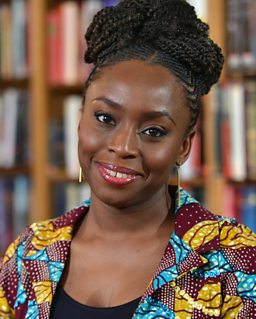
About the author
Chimamanda Ngozi Adichie’s first novel Purple Hibiscus marked the arrival of a major new literary talent.
Read More
Set in Nigeria where she grew up, her debut is told through the eyes of a fifteen year old girl who is facing the challenges of living under the rule of her fanatically religious father and an oppressive state. Purple Hibiscus was shortlisted for the Orange Prize and won the Commonwealth Writer’s Prize in 2005.
Further critical acclaim came with the publication of her second novel, Half of a Yellow Sun which was heralded almost immediately as a masterpiece. It went on to win several awards including the Orange Prize for fiction.
Half of a Yellow Sun is set against the backdrop of the Biafran War, Nigeria’s bloody civil war fought from 1967 – 1970. It centres on a professor, Odenigbo, and three characters who lie in his orbit. Ugwu his houseboy, Olanna the professor’s girlfriend, and Richard an English writer.
The lives of these three collide in unexpected ways as serious questions of ethnicity, politics and history play out. The novel’s searing treatment of the Biafran War saw Chimamanda Ngozie Adichie compared to, among others, Chinua Achebe, Ken Saro-Wiwa and Helon Habila. Half of Yellow Sun was adapted by Biye Bandele for the cinema and stars Chiwetel Ejiofor and Thandie Newton.
In 2009 Chimamanda Ngozie Adichie published her collected short stories, The Thing Around Your Neck set in America and Nigeria, and in 2013 she published her third novel Americanah which is about race and identity.
Americanah was well received and was shortlisted for the Bailey’s Women’s Fiction Prize and won the US’s National Book Critics Circle Award: Fiction category. She divides her life between the United States and Nigeria.
Elizabeth Allard, Βι¶ΉΤΌΕΔ Readings Unit
-
![]()
Discover the best of books and authors from Βι¶ΉΤΌΕΔ Arts


